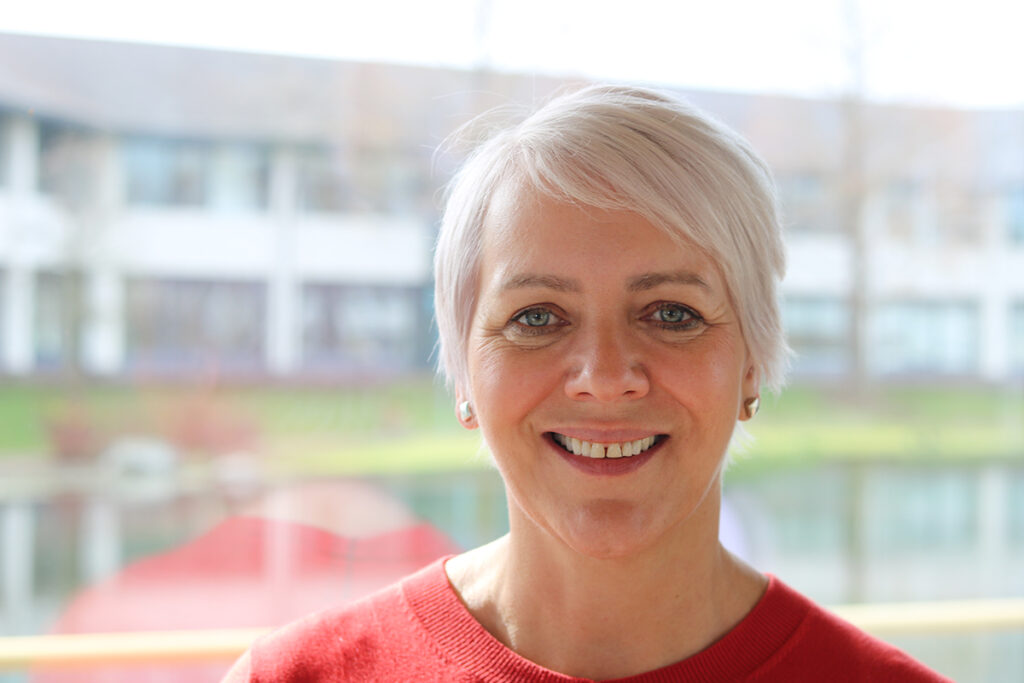Many readers will currently be facing up to the complexities of a loved one moving from children’s to adult services. A well-planned transition can be the foundation of a fulfilling and independent life for someone with learning disabilities and/or autism.
By Rachael Dodgson, Chief Executive at Dimensions

At Dimensions we experience far too many transitions that are last minute, rushed, ill-informed or otherwise unnecessarily stressful for the person at the centre and those around them. As an adult support provider, we’re all too often on the sharp end of closing the stable door long after the horse has bolted.
A bad transition can lead to periods of distressed behaviour. It can result in a person not living in the best place for them, or without the social care they really need. It can reduce opportunities for independence. It can permanently damage relationships between a family and all those they need to fund or provide services to their loved one.
Adult social care is a different world from children’s services. Put simply, the more proactive you are about your loved one’s future – starting at age 13-14 years – the better the outcomes you are likely to achieve.
Personalised transitions The 2014 Children and Families Act states that all young people have the right to have high expectations for their future and should be as involved in discussions about their future as possible. This means that conversations about preparing for adulthood must centre around what an individual wants their life to look like. There is no ‘one size fits all’ approach to transitions. The key to getting a transition right is tailoring it to the individual’s specific needs.
And yet, in a recent Care Quality Commission (CQC) survey only 50% of young people and their parents said they had received support from a lead professional during the process leading up to the transition to adult services. Some local authorities have dedicated transitions teams, but every local authority has a responsibility to manage transition out of school for pupils with an Education and Health Care Plan (EHCP). A critical early step is to press for a named primary contact in social services. Your loved one’s outcomes will be better if the local authority is focused on their individual needs.
Know your rights and responsibilities
There is loads of important legislation that protects your loved one. I’ve already mentioned the Children’s and Families Act, but you’ll also want to know the main provisions of the Care Act and the Mental Capacity Act. The law is powerful and is there to help. Use it.
Know your loved one’s options
There are many different possible living arrangements. Perhaps your loved one might live at home as an adult. Perhaps he or she might prefer to live in a care home. Or perhaps supported living would be the right solution. Do they want to live alone or with friends? We know that lack of appropriate housing is the key reason for half of delayed discharges from long stay hospital; it plays a similar role in difficult transitions.
Many families tell us they can’t visualise what supported living is and how it is different from a care home, or some sort of campus-type facility. To help, we’ve created a video. Search: ‘Your child’s transition to adulthood in supported living’ via: www.youtube.com
There are other things to think about, too. Could your loved one benefit from a personal assistant? Direct payments or Individual Service Funds (ISF)? What about banking and benefits? What supported employment opportunities are there?
Finding help…
You’re not alone. There’s a vast array of helpful resources out there.
Search: ‘Guide to a good transition’ via: www.dimensions-uk.org
Contact, for families with disabled children: www.contact.org.uk
National Network of Parent Carer Forums: www.nnpcf.org.uk
Search: ‘Into adulthood’ via: www.councilfordisabledchildren.org.uk
However, the most important resource when preparing for transitions is other families. Other families who have been through the process can offer a wealth of knowledge and insight. With 54% of young people preparing for transition and their families feeling they had not been as involved as they would like to be, gaining insight from others can help ensure you are fully involved and informed in the process for your child. Your child’s school or college can probably put you in touch with other families who have been in your position, and Dimensions offers a helpline manned by families who’ve all been through transition, for a straight-talking option.
The helpline is open from 9:30am to 1:30pm, Monday to Friday.
Tel: 0300 303 9161 or email: family.helpline@dimensions-uk.org



